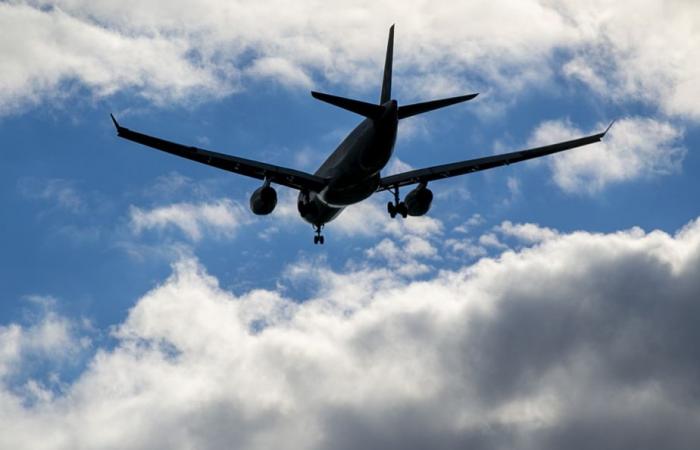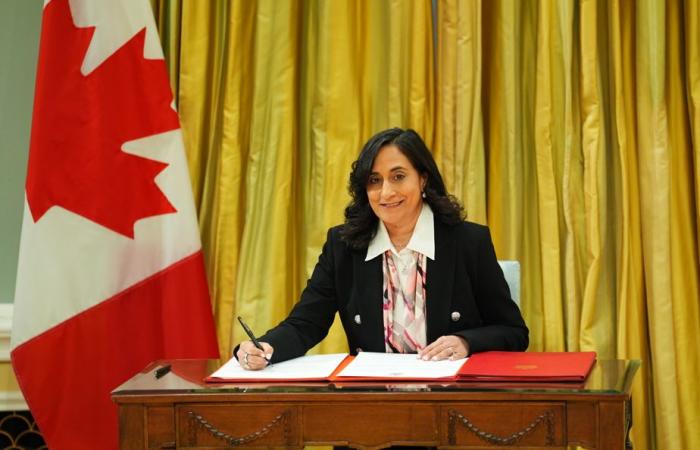(Ottawa) The federal government is proposing new rules regarding airlines' obligations towards travelers whose flights are disrupted, even when the delays or cancellations are caused by an “exceptional circumstance” beyond the carriers' control.
Posted at 11:55 a.m.
Updated at 1:53 p.m.
Sammy Hudes
The Canadian Press
The Canadian Transportation Agency's changes to the Air Passenger Protection Regulations, announced Saturday, would require carriers to provide meals to passengers whose flights are delayed by at least two hours, as well as accommodation for at night if necessary.
Airlines should also provide refunds within 15 days, rather than the current 30 days, if a passenger prefers to be refunded rather than rebook when their flight is canceled, delayed by at least three hours or that he is excluded from the flight. This change in deadline aims to better align with practices in force in the United States and the European Union, said the federal agency.
Ottawa says exceptional circumstances include security threats, unplanned airport closures, bird strikes, weather conditions or aircraft damage that could affect flight safety.
The Canadian Transportation Agency has been working to change regulations associated with the Canada Transportation Act since the Liberal government passed legislation last year to tighten rules around passenger rights.
These reforms place the onus on airlines to prove that a flight disruption is caused by safety concerns or reasons beyond their control.
Previously, the Canadian Passenger Bill of Rights, which came into force in 2019, divided flight disruptions into three categories: those caused by factors under the control of the carrier, disruptions under the control of the carrier, but necessary for reasons of security, and those beyond the control of the airline.
Passengers were only entitled to compensation in the first of these categories.
However, the federal agency said the categorization system was too complex and led to “varied and divergent interpretations” by air carriers and passengers, particularly when a traveler's claim for compensation was denied. or that the reason for a flight disruption was unclear.
The agency said it has received more than 150,000 air travel complaints since 2019 and many of them have not been resolved.
Transport Minister Anita Anand said the proposed changes aim to simplify the rules for travelers and air carriers.
PHOTO SEAN KILPATRICK, THE CANADIAN PRESS
Transport Minister Anita Anand
“The proposed changes eliminate gray areas and ambiguity around when passengers are entitled to compensation, which will ensure faster resolution,” said Ms.me Anand, via press release.
“We will strive to strike a fair balance between protecting passenger rights and promoting a competitive aviation sector,” she added.
Changes are now subject to a 75-day feedback period.
Under the amended rules, airlines are generally not required to compensate passengers for inconvenience caused in situations involving the prescribed exceptional circumstances.
However, they set out examples of delays or cancellations where carriers must still do so despite these exceptional factors.
If a flight has been canceled or a passenger has been displaced, the proposed changes require the air carrier to rebook a passenger on its next available flight or that of a partner airline, even in exceptional circumstances.
Airlines also have an obligation to rebook a flight for a passenger who has missed or is likely to miss a connecting flight due to a previous disruption of a flight on the same route.
The regulations include a maximum fine of $250,000 for airline infractions, an amount that was originally proposed by the Liberals' 2023 bill. This is a ten-fold increase over existing penalties. .
The federal agency estimates the proposed changes would cost carriers about 99 cents per passenger flight per year, or about $512 million over a 10-year period after they take effect.







